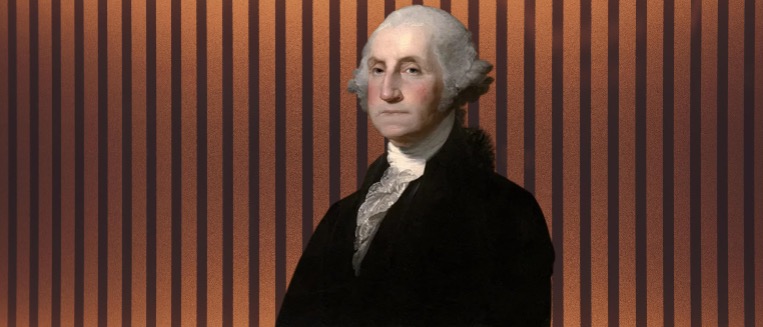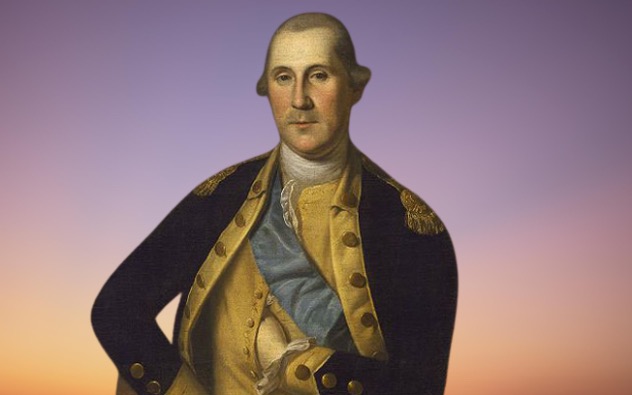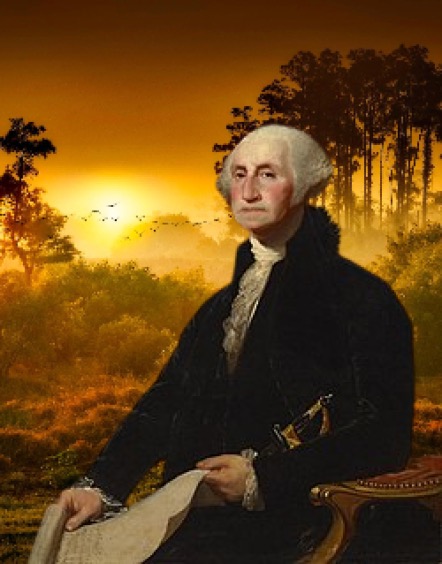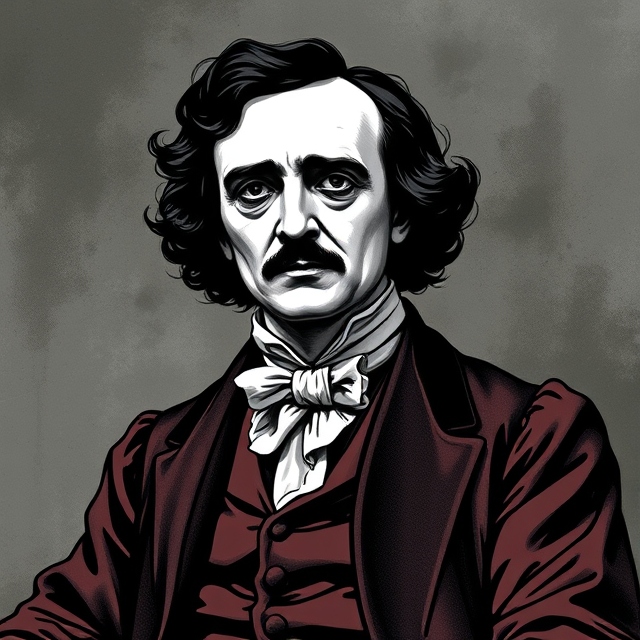
George Washington Biography
few names are as warmly associated with the annals of American history as George Washington. Dubbed “Father of His Country,” George Washington remains the very essence of what the image of America typifies, but who is he? From being a land surveyor to becoming the revolutionary leader who continued at the top of the revolution until his first position as President of the United States of America, George Washington’s life was an enlightening account on how America came to be.
This biography traces the milestones of Washington’s life and qualities that make him an enduring symbol of leadership and integrity. Let us apply the PAS framework for dissection on why his story remains captivating for Americans, and why lessons about leadership are relevant to today.
He was the first American to lead a divided nation to independence and then, a nation reunited in union.

Let’s briefly discuss the state of America when Washington took office. In the mid 18th century, the colonies were at war. The British Empire presented numerous hindrances in laws, exorbitant taxes, and the denial of a voice in British Parliament. Many of the colonies felt impotent and were divided as far as the question of independence went.
People wanted liberty but no one had led them to it. The colonies formed a patchwork quilt of different cultures and economies and interests, and the Revolution needed to be inspired by, united under, and acted by someone with conviction.
Washington responded to that challenge. It was those qualities and morals he displayed in his early years of life—integrity, perseverance, and humility—that made him the leader that the new nation needed. But where did he get them? Let’s rewind where it all started.
The Humble Roots and Trials of Early Years of Washington
George Washington : Family Life and Childhood
George Washington was born on February 22, 1732 in Westmoreland County. Virginia, to the couple Augustine and Mary Ball Washington. His background was humble, and he worked very hard to make the farm owned by his parents prosper. George’s father was a tobacco planter and businessman who died when George was merely 11 years old. This failure left the then-young George without a father figure, and the responsibility of the family estate had largely fallen on his mother’s shoulders.

Soon he developed an interest in becoming an educated man in the subjects of math and geography despite this failure. At age 16, he joined his first employment as a surveyor in Virginia’s Shenandoah Valley. This position was not very impressive but had given Washington all-important skills and knowledge regarding the land that would shape the military tactics he employed in the future. The occupation also taught him resiliency and endurance as he went through the rugged terrains and forests of the Virginia wilderness.
George Washington : Military Beginnings The French and Indian War
The first military environment that Washington experienced was in the French and Indian War in 1753. At this point, he was one of the young majors. He was given the task of delivering an ultimatum message to the French, telling them to leave the Ohio Valley. This threw him into the messy mix of military strategy and warfare as well as international diplomacy. Soon enough, he kept advancing in the next years without proper training and material.
He had to face many hard times while this war was going on. He got defeated at Fort Necessity; Washington had to take this as a personal defeat. He didn’t break because of these hard times and challenges but got strength. He was at the end of his military career of great courage and strength. He has now had it with all the British codes of army and decided to get out and go back to Mount Vernon, his estate that has been passed on to his family.
Married during the year 1759 to Martha Custis who was already a widow, with children. Financial and social stability was brought about by her in Washington’s life. His marriage to Martha allowed Washington to establish Mount Vernon as the plantations he had always known it should be. She would provide Washington with grand strength both personally and monetarily as he oversees the management of his estate and becomes deeply entrenched in his local politics, becoming impatient with interference from the British.
George Washington : Becoming the Revolutionary Leader
Entry into Politics and the Path to Revolution
Gradually, he turned out to be not a simple landowner but the very revolutionary leader who led America’s revolution. His abhorrence toward the policies imposed by Britain kept on developing over the course of his lifetime when he would be observing the adverse impacts of extremely high taxes and laws within his estate as well. Therefore, Washington became strong enough when British Parliament enforced Stamp Act and Townshend Acts during the 1760s.

He took a conservative stance at the early stages, assuming that the British will come to an agreement. He joined the full independence group when the British did not take steps toward the grievances of colonies. In 1774, he attended the First Continental Congress, which was his debut step on the national field of politics.
George Washington : Continental Army Leadership
When the Revolutionary War began in 1775, the Second Continental Congress voted Washington Commander-in-Chief of the Continental Army. Who else could it be but Washington? He was experienced, respected, and, most importantly, from Virginia, which helped bring about unified support from the southern colonies.
It wasn’t easy playing the role of Washington, though. Scarce resources, untrained troops, and bad weather were among his biggest challenges. One of the defining moments of his military career was the winter of Valley Forge in 1777-78. The troops were underfed, poorly clothed, and freezing. Under Washington’s leadership, though, morale was kept high, and he worked hard to obtain supplies and training. By spring, the Continental Army was ready to face British forces and came out strong and disciplined.
George Washington : Winning Independence The Yorktown Victory
He won the battle in 1781 with his own men at Yorktown against his French allies. He became the national hero in American history due to his final victory of the Revolutionary War.
The colonies were now free, but with British forces defeated, there was now a new problem of how to build a united functioning government. Many called for Washington to be king but he famously declined, reaffirming his belief in democracy and the power of the people. His commitment set an important precedent for governance in America.
Assuming the Position of First President: Precedent Setting in Leadership
Constitutional Convention
The Articles of Confederation, after the war, proved ineffective for governing the young nation. Washington worried about the future of the nation and went to the Constitutional Convention in Philadelphia in 1787. His support was instrumental in drafting and ratifying the U.S. Constitution.
He was elected unanimously as the first President of the United States in 1789, with his administration handling issues that dealt with the formation of a strong federal government while also establishing rights for both states and individuals.
George Washington : Consolidation of the Federal Government
As president, he set the standards that dictate governance in America for all the coming centuries. Washington organized the very first presidential cabinet, nominating two of his country’s future giants- Thomas Jefferson for Secretary of State and Alexander Hamilton as Secretary of the Treasury. His historic debates in his cabinet, where Jefferson debated Hamilton over matters of a role to the government, reflected exactly the kind of two-party system of governance there is today in America.
The other is that his policies brought into the nation economic stability as well. He promoted Hamilton to make a national bank, and simultaneously he paid the debt of states gained from the Revolutionary war. It was a significant issue, but this fact steadied the economy at a time it was rising, and also put the nation in a place of monetary security.
Whiskey Rebellion Safeguarding Federal Power
Another hindrance to the testing of Washington’s presidency was the Whiskey Rebellion in 1794. When the Pennsylvania farmers rebelled, upset over the tax the federal government had imposed on whiskey, it was perceived as an overt act of defiance against federal power and Washington personally went out to march and squelch the rebellion with a demonstration that the federal government had both the power and the mettle to enforce its law. It was during his response to the Whiskey Rebellion that he highlighted his commitment to a strong, unified country with rule of law.
A Peaceful Transition of Power
Perhaps the greatest legacy of Washington was his decision to retire after two terms. Voluntarily leaving office in 1797 established the tradition of peaceful transition, demonstrating the presidency as a position of service and not power. It set a precedent that would last long for future presidents, strengthening democratic principles he fought to institute.
In his farewell address, he warns over political parties and foreign alliances and urges the nation for its unity and neutrality. Most of his advice could never really see the daylight, but it speaks volumes over deep concerns he held over the future of his nation.
End. From early struggles, military triumphs, to presidential decisions, he carried the values that defined America. Washington was not without controversy and certainly not a perfect leader. A slaveowner himself, his status has been very debated upon regarding his legacy, yet reminding us that even great leaders are the product of a time.





